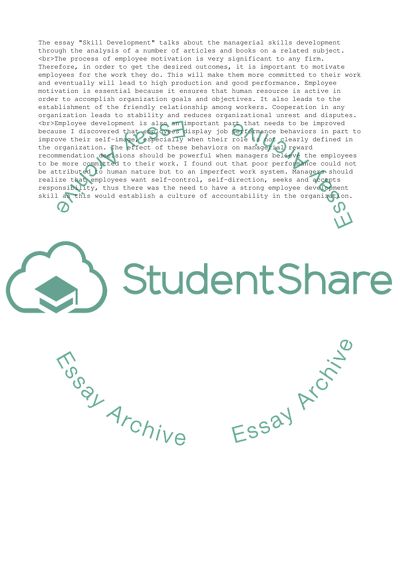Cite this document
(“Skill Development Essay Example | Topics and Well Written Essays - 1500 words”, n.d.)
Skill Development Essay Example | Topics and Well Written Essays - 1500 words. Retrieved from https://studentshare.org/management/1606401-skill-development
Skill Development Essay Example | Topics and Well Written Essays - 1500 words. Retrieved from https://studentshare.org/management/1606401-skill-development
(Skill Development Essay Example | Topics and Well Written Essays - 1500 Words)
Skill Development Essay Example | Topics and Well Written Essays - 1500 Words. https://studentshare.org/management/1606401-skill-development.
Skill Development Essay Example | Topics and Well Written Essays - 1500 Words. https://studentshare.org/management/1606401-skill-development.
“Skill Development Essay Example | Topics and Well Written Essays - 1500 Words”, n.d. https://studentshare.org/management/1606401-skill-development.


